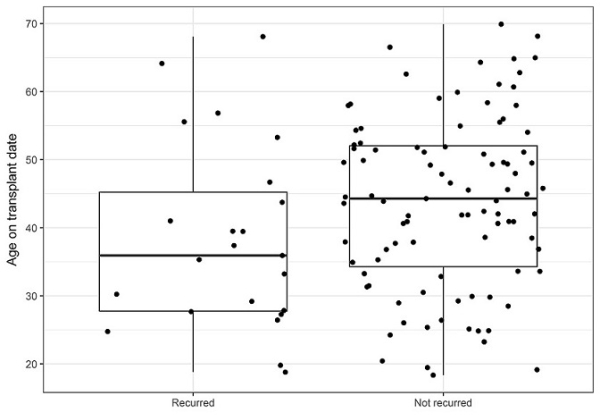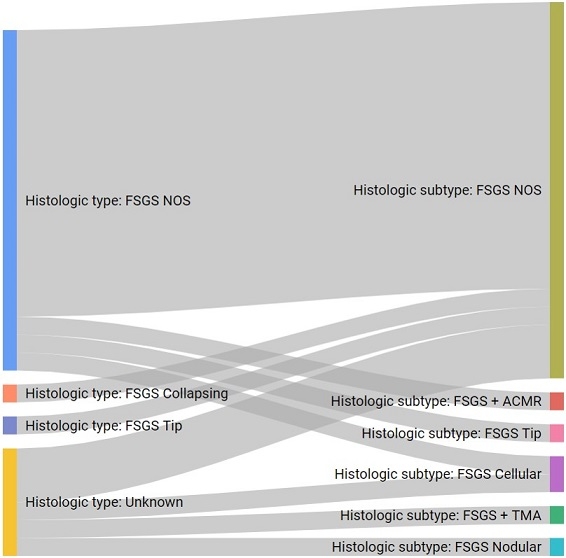Recurrent FSGS Post-Transplantation: Prevalence and Risk Factors
1Department of Nephrology and Transplantation, Guy's and St. Thomas&apos
NHS Foundation Trust, London, United Kingdom
2Department of Health Sciences, University of Leicester, Leicester, United Kingdom.
Meeting: 2018 American Transplant Congress
Abstract number: 103
Keywords: Glomerulonephritis, Graft survival, Kidney transplantation, Recurrence
Session Information
Session Name: Concurrent Session: Kidney Complications: Disease Recurrence
Session Type: Concurrent Session
Date: Sunday, June 3, 2018
Session Time: 4:30pm-6:00pm
 Presentation Time: 4:30pm-4:42pm
Presentation Time: 4:30pm-4:42pm
Location: Room Hall 4B
Introduction: Primary FSGS can recur in the renal allograft and is associated with poor outcomes. The aim of this study was to assess the prevalence of recurrent FSGS and to identify risk factors of recurrence.
Methods: We studied retrospectively our renal transplant recipients (2005-2016) with primary FSGS, who were diagnosed post-transplantation with biopsy-proven recurrent FSGS. Using electronic health records, we collected data regarding demographics, kidney survival and FSGS histological type. Patients with secondary FSGS, missing data and those lost to follow up were excluded.
Results: 121 patients with primary FSGS were included in the study. The prevalence of recurrent FSGS was 22.3%. Patients with recurrent FSGS were younger at transplantation, compared to the patients who did not recur (36 vs 44 years, p=0.05). We found no significant differences for the other variables studied. Patients with recurrent FSGS were mostly Caucasians (77.8%) and underwent living donor transplantation (62.9%). Patients who recurred, had history of rapid progression to End Stage Renal Disease (median time of 3.1 years, IQI 0.92- 5.70) and rapid loss of previous grafts (median survival of 1.5 years, IQI 0.92-2.18). The median time from transplantation to recurrence was 3.96 months (IQI 0.90-18.5). There was no correlation between the histological type of FSGS in the native kidney biopsy and in the allograft biopsy.
Discussion: The prevalence of recurrent FSGS post-transplantation in our population was lower than the reported in the literature. Renal transplant patients with recurrent FSGS were more likely to be Caucasians, younger at transplantation, with history of rapid progression to ESRD and rapid loss of previous allografts.
CITATION INFORMATION: Aguiar R., Gasparini A., Chowdhury P., Game D., Moutzouris D. Recurrent FSGS Post-Transplantation: Prevalence and Risk Factors Am J Transplant. 2017;17 (suppl 3).
To cite this abstract in AMA style:
Aguiar R, Gasparini A, Chowdhury P, Game D, Moutzouris D. Recurrent FSGS Post-Transplantation: Prevalence and Risk Factors [abstract]. https://atcmeetingabstracts.com/abstract/recurrent-fsgs-post-transplantation-prevalence-and-risk-factors/. Accessed February 21, 2026.« Back to 2018 American Transplant Congress


